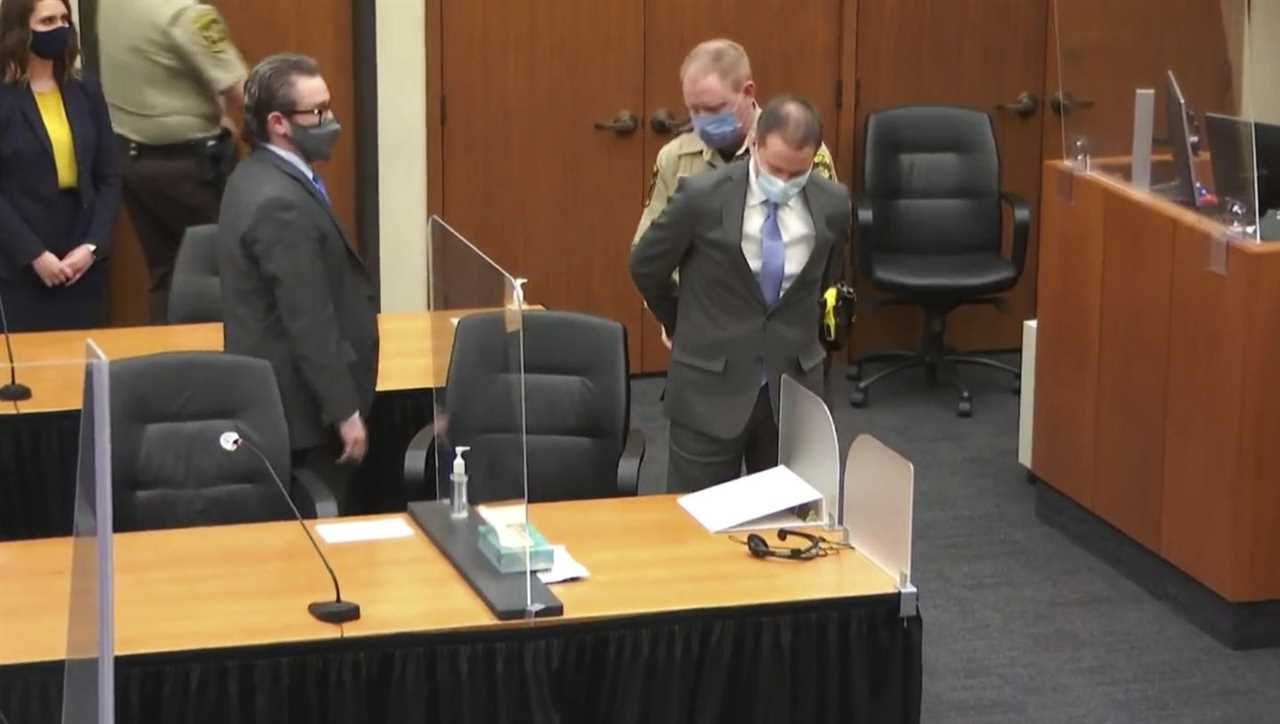Almost everyone exhaled. A jury convicted the former police officer who murdered George Floyd, and everyone in the United States must have been tuned in.

It was an extremely unusual verdict; criminal prosecution of police violence against Black men is rare and conviction is even less common. And the facts of this murder were particularly egregious, not a flurry of bullets in a night time moment, but an extended, almost gleeful, act of torture, as a police officer strangled a man crying for help over nearly ten minutes in bright daylight.
The murder was unusually well-documented and broadly observed. Darnella Frasier, 17 at the time, recorded the last moments of Floyd’s life on her phone, because she couldn’t do anything more; it was a courageous act. The video went viral, reaching a mass audience trapped at home in what turned out to be the early part of the Covid pandemic.
George Floyd’s death sparked the resurgence of a Black Lives Matter movement and produced hundreds of demonstrations across the United States, immediately most visible in Minneapolis.

The protests in the streets put pressure on the legal system to do better. In response to the protests, Minnesota Governor Tim Walz appointed the state’s Attorney General, Keith Ellison to lead the prosecution, rather than leaving it to Hennepin County’s district attorney.
AG Ellison recruited an all-star team of attorneys and forensic experts, sparing no expense in supporting a vigorous and extensive prosecution, as well as charges more severe than initially floated by the county prosecutor. The prosecution presented 45 witnesses, and offered comprehensive rebuttals of every defense raised. Those witnesses included the Minneapolis chief of police, who testified that the murder violated both standard procedures and training.
Would all of this have happened without the protests? We can’t rerun history, but there is little reason to believe that police violence against Black men would be prosecuted and punished. The list of names of victims whose police killers never faced criminal justice is long….and continues to grow.
So, the activists should claim a victory, and note that it’s a small one….so far. The court system, at best, decides cases, not causes. A police officer who abused his position and killed a man lost his job and is now in jail. This is the way the system is supposed to work after the system has broken down, hiring and retaining and arming exactly the wrong person.
It’s a bit of accountability, but not justice, and a tiny tiny step toward more meaningful reform. The courts won’t change the routines of policing in Minneapolis or the rest of the United States, and most of those claiming victory know that there is much more to be done.
We sigh with relief only because we know it could have been so much worse.
----------------------------------------
By: David S. Meyer
Title: What a guilty verdict can’t do
Sourced From: politicsoutdoors.com/2021/04/20/what-a-guilty-verdict-cant-do/
Published Date: Tue, 20 Apr 2021 23:36:11 +0000
Did you miss our previous article...
https://consumernewsnetwork.com/politics-us/september-22nd-playbook






